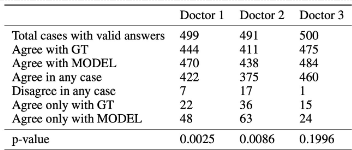
Business Challenges
In the healthcare industry, making accurate clinical decisions is crucial for patient care and outcomes. Clinical Decision Support Systems (CDSS) utilize evidence-based knowledge and patient data to offer real-time recommendations, aiding healthcare professionals in their decision-making processes. The healthcare industry plays a pivotal role in society, impacting the well-being of individuals and communities. With the increasing complexity of medical data and diagnoses, the need for effective clinical decision support is more significant than ever. Efficient decision-making can lead to improved patient outcomes, reduced healthcare costs, and enhanced overall efficiency in healthcare delivery. Healthcare professionals often face challenges in interpreting complex medical data and making accurate diagnoses in a timely manner. These challenges can hinder the efficiency of healthcare delivery, leading to delayed diagnoses, ineffective treatments, and increased costs.
AI Solution
Large Language Models (LLMs) have emerged as a promising tool in clinical decision support, capable of generating plain-text explanations for medical decisions. The AI solution utilizes patient complaint data and corresponding diagnosis codes from the RuMedBench dataset. The data is cleaned and prepared to ensure its accuracy and relevance to the clinical context, then transformed into a format suitable for analysis by the LLM. LLMs leverage advanced natural language processing techniques to understand and generate human-like explanations. They analyze patient complaints and corresponding diagnoses to provide clear and interpretable explanations for clinical decisions. By addressing the challenges in clinical decision-making, LLMs provide real-time, evidence-based explanations for diagnoses, aiding healthcare professionals in making informed decisions.

Expected Outcome
AI-driven clinical decision support can streamline the diagnostic process, reducing the time required for accurate diagnoses and improving efficiency. Moreover, by improving diagnostic accuracy and treatment efficacy, AI can help reduce unnecessary healthcare expenditures. AI-powered explanations can enhance the decision-making process for healthcare professionals, leading to improved patient outcomes. Key performance indicators such as diagnostic accuracy, treatment efficacy, and patient satisfaction will be used to measure the success of the AI implementation. The AI solution is expected to improve diagnostic accuracy, reduce diagnostic errors, and enhance overall healthcare efficiency. AI complements the expertise of healthcare professionals by providing real-time, evidence-based support in clinical decision-making. By automating routine tasks and providing timely insights, AI enhances the capabilities of healthcare professionals, allowing them to focus on more complex patient care tasks. The adoption of AI-driven clinical decision support systems has the potential to revolutionize healthcare delivery, leading to improved patient outcomes and increased efficiency. Organizations that embrace AI technology can gain a competitive edge through innovation in healthcare delivery and improved patient care.











